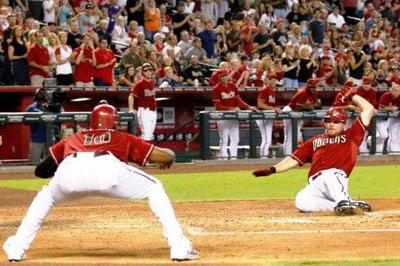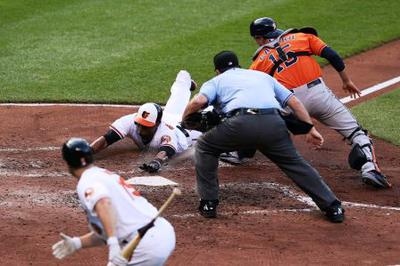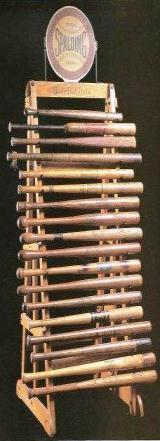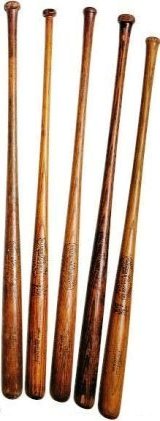Why don't on deck batters "coach the plate"?
by James T. Moran
(California)


James asked: The main goal in baseball is to touch home plate.
Yet players (generally on deck batters) don't assist a teammate that is running with his back to the ball and has know idea which or even if he should slide and in what direction.
I find it reprehensible that the on deck batter is standing a few feet away watching the runner get thrown out by sliding to the wrong side of the plate.
Coaching the plate is an art that is not used as much as it should be. On deck batters should be reminded to 'coach the plate'. We were taught in 1966 by my high school coach how to coach 1st, 3rd and home. It was practiced at least once a week.
That to me is the best and easiest way to help a teammate. After all if you don't cross the plate safely the best you can hope for is a tie.
Rick answered: James, thank you for your question.
Time spent in that circle is certainly more than waiting on your turn at bat.
The link below will take you to one such event.
You are correct, on deck hitter responsibilities seem to get little or no attention.
Letting the runner know whether to slide or stand up, as well as which direction to slide are essential.
Baseball is filled with little details that make a difference between one player and another, as well as one team or another. Attention to detail is certainly a separator.
Sounds like you had the benefit of some solid coaching when you were playing. All those little details provide players with an added level of confidence which allow them to function at a higher level.
Yours in baseball,
Rick
|





